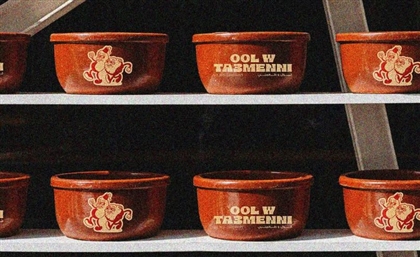Who’s Zeinab & Why Do We Gorge on Her Fingers Every Other Weekend?
From sadder tales to more coincidental ones, we’ve traced back several potential origin stories for the famed Sawabe’ Zeinab.

Originally Published on December 31st, 2024
Sawabe’ Zeinab are integral to the Egyptian experience, that much is irrefutable. From Friday evening gatherings at grandma’s to Ramadan dessert tables, we’ve all been properly acquainted with these honey-drenched sweets time and time again.
Yet the origins of its name remain somewhat muddled. From sadder tales to more coincidental ones, we’ve traced back several potential origin stories for the famed “fingers of Zeinab”…
-ed7be8f0-e632-467b-9a86-bb63e9cb4c87.jpg)
A Daughter’s Goodbye?
Our first potential origin story follows the historic battle of Karbala, in which Husayn Bin Ali Bin Abu Taleb, grandson to Prophet Muhammed (PBUH), was martyred. The story bases itself on his youngest daughter Zeinab, who ran to her deceased father’s lifeless body, held on, and refused to let go.
The story claims Zeinab, the faithful daughter she was, could not be pried off of her father. His soldiers were then forced to strike her fingers with their swords, and thus, the name was born.
-77e65723-3085-477d-ac37-ffcbd31e4aa8.jpg)
A Regal Refreshment…and Misdirected Blame?
But not all tales are steeped in tragedy. A second story brings us to the scene of a victorious celebration after the Muslims triumphed over the Mongols at the Battle of Ain Jalut. Sultan Baibars is said to have ordered sweets to be made and shared among the guests. Among the offerings, 'Sawabe' Zeinab' stood out…
When Baibars asked the cook about its name, the nervous cook, assuming the dessert had been disliked, referred to it as ‘Zeinab’s fingers,’ after the cook who made it. Baibars, believing that was the name of the treat, later met and married Zeinab - so the fairytail-esque story goes.
-4597d5b9-8a65-45b7-988b-f36a6909adab.jpg)
Our Potential Winning Argument…
The final theory is perhaps the most plausible, seeing as it draws directly from a figure of speech as integral to family gatherings as mint tea. In Egyptian Arabic, the phrases (‘eslam eedak’ - which roughly translates to ‘bless your hands’) and ‘teslam sawab’ek’ (which translates to ‘bless your fingers’) are often used to compliment good food, and this theory hinges on just that.
The story goes that years and years ago, a young talented baker by the name of Zeinab came up with the then-novel sweet Egyptian pastry when a suitor came knocking on her door. When guests said ‘Teslam sawabe’ Zeinab’, or ‘Bless Zeinab’s fingers’, when they talked about the sweet, the name and the recipe stuck, going from house to house, and generation after generation.
-4218af6a-cb8d-4803-883f-cc83c12c800c.jpg)
The Verdict…
While some stories seem more logical than others, it cannot be ascertained that any of them are actually the real deal. We Egyptians are storytellers, and it’s in our very nature to attribute meaning to aspects of our lives and culture that may not have a clear-cut identity.
So whether Sawabe’ Zeinab owe their name to a grieving daughter’s lost fingers, or a loving baker gifting her betrothed a taste of her own creativity, one thing remains certain: Sawabe’ Zeinab will remain a pillar of Egyptian hospitality for years to come, as they have been for years in the past.
Trending This Month
-
Jan 29, 2026
-
Jan 30, 2026
-
Feb 01, 2026























